Health WellNews
The Joy Of Healing: How Summer Fun Heals the Heart
What comes to mind when you think of summer? For me, it stirs up nostalgia of childhood feelings of freedom, knowing that those endless days were all mine to fill with family and friends as we shared the sunshine. While “adulting” doesn’t always leave room for that kind of freedom, the promise of summer still gives us so much to celebrate.

In TCM, summer belongs to the Fire element. It is about expansion, outward expression, activity and joy. The heart is the ruler of this time. It houses the shen, or spirit, and this is the time to let the spirit dance and frolic and feel as free as possible. With the fire element in balance, the heart is happy, the mind is clear and the body maintains health with a blend of movement and stillness, excitement and peace. Summer is nature’s way of healing the heart by providing the ideal setting for all things heart-related!
So get pumped up for summer and all the healing it brings via:
Sunshine
What better way to bask in the healing power of summer than by soaking up the healing rays of sunshine. Obviously stop before you get burned, but don’t be afraid to feel that shine and let it in. When UVB rays hit human skin, they help to produce Vitamin D3, which reduces risk of heart disease, stroke, and hypertension . Those same UVB rays cause the skin to release beta-endorphins which promote natural pain-relief and a sense of well-being. Sunlight also helps the body to release nitrogen oxides, which opens up arterial flow and have anti-inflammatory effects. The exposure to sunlight is also required to set our natural circadian rhythms which regulate our sleep and wake cycles. For those of us who experience cold winters, the warmth of sunshine is one of the most welcome feelings and one of the best ways to support our fire element.
Activity
The energy of summer in Chinese medicine is considered very yang in nature. Fire is the element of extreme yang, and has a radiating, dispersing power. Think of the lively dance of fire burning. This is the time to move, get our heart pumping, and blood circulating. This is time for focusing on cardiovascular health! Summer makes this a much more inviting task with outdoor sports, swimming, hiking, or simply a walk on a warm summer night. And don’t forget to dance..never forget to dance.
Beauty of the Season
Taking care of the heart in Chinese Medicine includes making the spirit feel at home in the heart and the spirit craves beauty. Look at how the earth changes in summer. Flowers bloom, colors come alive, birds sing; there is art and music everywhere. This is a time for aesthetics and we all have our own taste. Get out and enjoy whatever stimulates your mind and heals your heart. Admire nature’s sunset paintings, smell the sweet perfume of the flowers, and let your spirit sing with the sounds of the season. Celebrate your own creative expression along with the energy of the season.
Community
The sound that belongs to the heart according to TCM is laughter and the emotion is joy. It’s no wonder that joy feels best when shared. It’s also no wonder that researchers have found that the quality of family relationships and social connection is a strong factor in heart disease prevention. So, as summer provides the warm inviting opportunities to get together, treasure your family and friends (and pets!) and find ways to connect, laugh and share your joy!
So, what are you doing this Summer? We’d like to know.
One thing that I may suggest, would be to get yourself back in here for an acupuncture summer-time tune-up! That’s one of the easiest ways that we can help manage your health and well-being. Give us a call today to schedule up your tune-up.
Summer’s Bounty
Diet Tips for Staying Balanced in the ‘Great Yang’ Season
The Great Yang season is upon us. Yang energy is bright, fiery and hot like the midday sun. Yang is the counterbalance to Yin. Yin is expressed in the cooling, calming energies of life. Together, Yin & Yang, like night & day, represent the dynamic balance between the opposing, but complementary forces that make up all of existence. These forces are ceaselessly intermingling in a sacred dance of life’s cycles. The cycle of the seasons is a perfect demonstration of this balance in motion, and as we turn the corner into summer, we reach a pinnacle in the cycle, the summer solstice. Summer is known as the “Great Yang” season because of this peak in the yang energy: the sun (ultimate yang energy) is closest to the earth and the day (yang time) is the longest at this time of year.
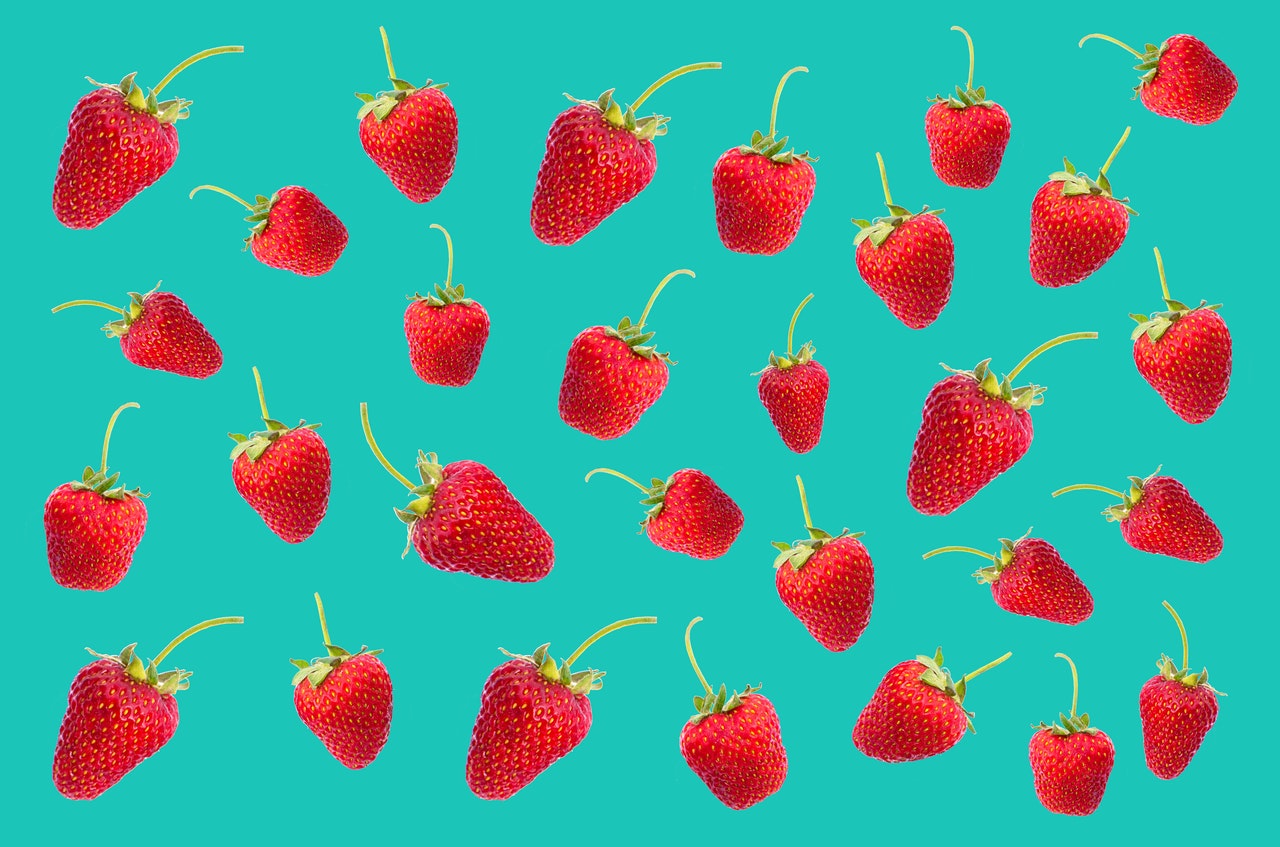
We, as humans, are part of nature, so these forces exist in us just as in our environment. With each changing season, Chinese Medicine offers lifestyle guidance to tune our own energy cycles to the world around us so that we can live in health and harmony.
One of the branches of this ancient medicine and health philosophy is dietetics. There are a number of simple things to consider when adjusting your diet to the energy of the Great Yang season.
In Season Fruits/Veggies/Herbs:
Time to hit the farmer’s market! It’s vital to interact with your natural environment through the food it offers. Summer is full of fresh fruits, vegetables and herbs that help to keep you hydrated, and to disperse your Qi to match the light, ascending energy of yang. Nature knows best so pay attention to what is growing well in your area as it may be exactly what your body needs to be more aligned with the energy of the season.
Heart and Small Intestine Considerations:
The heart and small intestine are the paired yin and yang organs associated with summertime and the element of fire. The heart houses the mind and it’s job is to perfuse the body with blood while the small intestine’s job is to sort and process the food received from the stomach. Blood tonifying foods like dark leafy greens and lean meat are important to ensure a blood-rich safe haven for the mind to rest, as well as enough blood to carry that energy of consciousness throughout the body. Red foods like cherries, strawberries, goji berries and tomatoes support the fire element and it’s no coincidence that these foods are rich in antioxidants credited with cardiovascular benefits. Also, have a heart when considering the important sorting job of the small intestine. We can alleviate stress on this organ by not
overloading it with nutrient-deficient, over-processed food.
Keep it fresh!
Timing is Everything:
11am-1pm is heart time according to the 24-hour cycle of energies in our bodies. Lunch time, the time when the energy is strongest in the heart meridian is also a time when our digestive fire is strong, so enjoy a mid-day meal! 1pm-3pm is small intestine time, this is the time to sort and absorb food, rest, and allow your body to process the nutrients.
Presentation of Food:
Be mindful of aesthetics when serving yourself or others food in all seasons, but especially summer, as beauty pleases the heart. What feeling does your food stimulate before you even eat it? Consider garnishing your dishes with a little extra love like a sprinkle of sesame seeds or a fresh edible flower.
Summer Recipe:
While a soup may seem like more winter-appropriate, sipping a warm soup can help the body stay hydrated and also induce gentle perspiration to keep the body cool. You can add slightly cooling (in nature not temperature) foods and herbs to the soup to balance the warm temperature. Here’s a simple summer soup to assist the heart in blood circulation and Qi dispersion while helping to eliminate excess heat.
- 6 cups vegetable stock
- 1 cup beets
- 1 cup carrots
- 1 cup corn
- 1 tablespoon roasted sesame oil
- ½ oz carthamus flowers (commonly known as safflower, this is an herb for blood circulation in Chinese Medicine)
Cut the beets and carrots into cubes and stew in the stock for 15 minutes. Cut the corn off the cob and palace the carthamus flowers in a sachet. Add the corn, carthamus sachet and sesame oil and simmer for an additional 5 minutes.
Easing Transitions with the Earth Element
We all are very familiar with Spring, Summer, Fall and Winter but why does Chinese Medicine include a fifth season and where does it fit on the calendar? According to TCM theory, the fifth season is actually that important time between the seasons, where we ‘return to center’ so we can ‘pivot’. About 2-3 weeks before the beginning of each season is a time of transition.
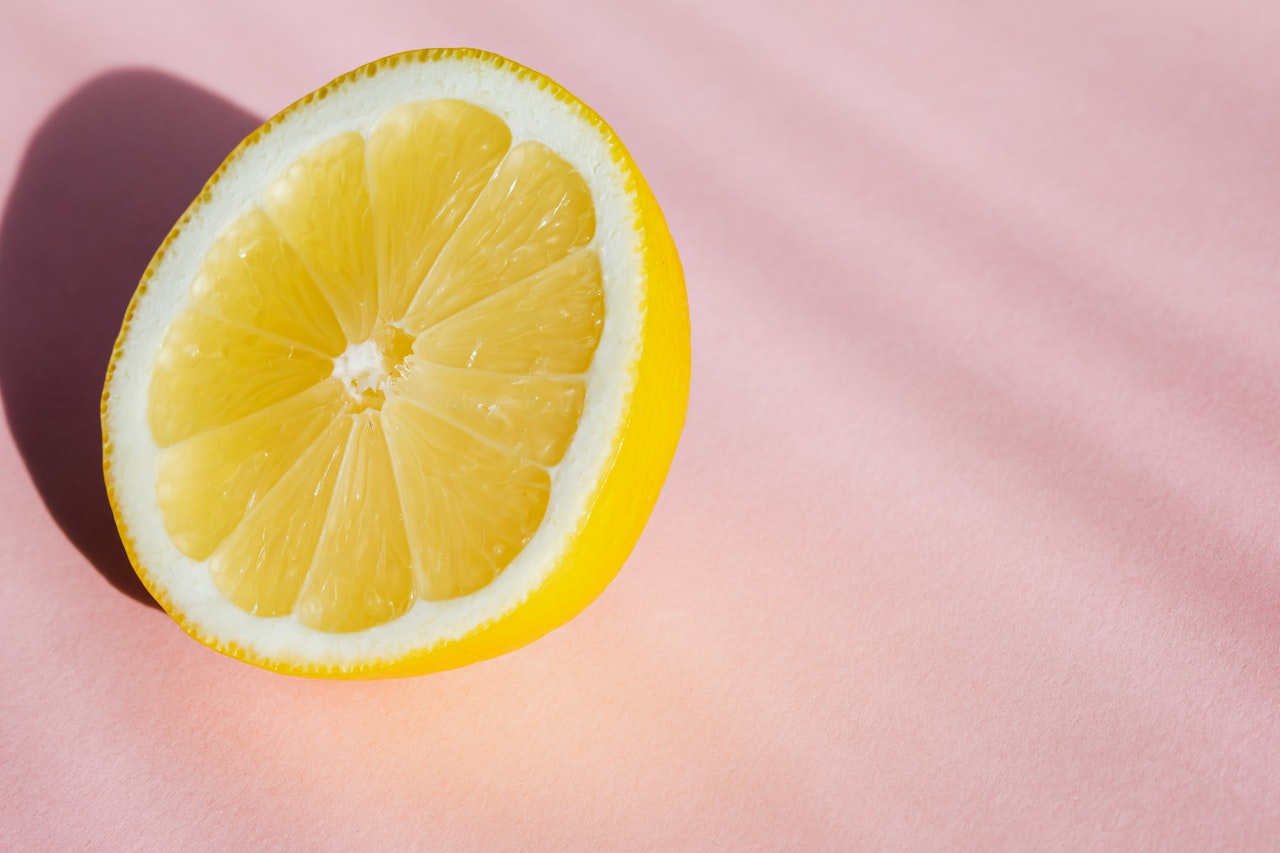
Each season correlates with an elemental energy. Spring belongs to the wood element, Summer to fire, Fall to metal and Winter to water. The transitional time between the seasons rightfully belongs to the earth element as this is the time when the seasonally dominant energy returns to the earth to be transformed into the next seasonal energy.
The Earth Element is generated and managed in the body by the spleen and stomach. These organs are in the business of metamorphosis. As digestive organs (according to TCM), they transport and transform the food we eat into nutrition to build our blood and nourish our cells. The spleen governs the muscles, and is important in the free movement of the body. The associated orifice is the mouth and spleen Qi manifests in the lips. The Spleen is also known for housing the intellect (yi) and is involved with the thinking aspect of spirit. The color of the earth element is yellow, and the taste is sweet.
The Chinese Lunar Calendar sets the start of the seasons earlier than our Gregorian calendar, so if we are following the seasons according to Chinese Medicine we can anticipate the start of Fall this year around Aug 7th. The period about 18 days prior to that date (beginning around mid-July) is called late summer, and this is the time to pay special attention to the energy of transition.
The benefit of nourishing our earth element during this time is to gain balance and stability for periods of change. The earth element represents our wide center stance from which we can safely assess the next move (picture the slow smooth movements of tai chi). The importance of core stability rings true whether we are talking about physical activity or more subtle energy dynamics.
1) Diet:
Avoid damp cold food such as ice cream as it can put a burden on the spleen that prefers warm, dry conditions. Eat breakfast between 7-9am which is stomach time according to the Qi clock. From 9-11am is spleen time. Some gentle activity is ok but as the spleen converts food to Qi, try to take it easy so you do not disrupt digestion. Avoid processed sugar while enjoying the natural balance of sweetness from the earth with foods like apples, carrots, dates, and sweet potatoes.
2) Release Worry-Patterns:
The spleen houses the intellect and is responsible for thought but can be weighed down by overthinking. This will slow its ability to transform our food. We can all think of times when worry led to unpleasant digestive experiences.
So, find ways to shift patterns of over-thinking and worry.
(Cue the serenity prayer…)
3) Yellow:
Stimulate earth energy with its color and brighten up someone’s day by wearing more yellow. Notice the yellow colors in nature, stop and absorb their frequency. And eat yellow foods: bananas, yellow peppers, lemons etc.
4) Earthing:
You know what to do. Connect direct! Get those bare feet on the ground (pesticide-free please).
Now get some Vitamin-E on those earthy lips and pucker up: you’ll be ready to give Fall a sweet kiss hello.
Traditional Tips for Insomnia
When you consider that Traditional Chinese Medicine (or TCM) dates back over 3,000 years, it is easy to see the vastness of theory and history involved. This fascinating complementary medicine arms practitioners with a plethora of unique diagnostic tools. These tools include an ability to detect Qi imbalances, define the underlying problems and correct them. When it comes to Spring, Traditional Chinese Medicine recommends MORE activity. In order for one to become more physically active, it is imperative to have and maintain a healthy sleep schedule. However, recent statistics show nearly 60 million Americans experience insomnia and other sleep-related problems daily (and this statistic was taken before the Covid-19 global crisis). With these numbers, understand that if you are suffering from insomnia or unable to get a good night’s rest, you are absolutely not alone. The good news is, implementing some basic TCM practices could help you get back on track.

Acupuncture and TCM continue to come out on top of the list of suggested treatments for sleepless nights and improper circadian rhythms. The reason TCM is so effective has a lot to do with the adaptability of treatment modalities. TCM does not only suggest herbs and acupuncture, or massage and physical exercise but also lifestyle changes to introduce healthy habits. Here are some of our favorite lifestyle adaptations you can consider if you or someone you love is struggling with insomnia.
Spend time outside: Camping has been shown to help reset the sleep cycle of insomniacs. Your body will be able to reset itself after a couple of days, allowing your circadian rhythm to get you back into a proper sleeping pattern. This theory goes hand in hand with some of TCM’s primary principles; staying in tune with nature. Ask me for some of my favorite springtime outdoor activities.
Digital detox: The digital stimulation we experience these days is overwhelming. This past year was absolutely no exception. In 2020, virtual meetings and classes took over our homes, near-constant attention to news updates became a necessary evil, and social media became the primary means of community. With the “go-go-go” attitude of mainstream culture, sometimes digital stimulation alone can make it hard to slow down enough to find rest. Turn off the devices at least 2 hours before bed. Better yet, create a digital detox day of the week: one day where you and your family unplug and allow yourself to reacclimate to the natural world.
Plan for sleep: Setting a bedtime, and sticking with it, can help reset your sleep cycle. Implement a routine and do the same things nightly before going to bed. If you are struggling to fall asleep on time, consider a wind-down routine. Create a routine for yourself that may include a cup of tea, a yoga or tai chi session, reading or writing. Experiment with what feels best for your mind and body.
Change the lighting: We are all sensitive to light. Before the regular use of artificial lighting, humans spent their evenings in a slow transition to nighttime darkness. In the evening create a darker environment in your home to help your brain ease out of the daytime stimulation and start slowing down. Alternatively, when you wake up in the morning, be sure to open the shades and turn the lights on again to help tell the brain to wake up and get going. Consistency is essential and will help train your brain and balance your circadian rhythm.
Late-night binges: Stop ingesting caffeine, alcohol, and nicotine and go easy on the late-night snacks. Eating too late is common and can cause indigestion and restless nights. If you’re still hungry right before bed, try something light and healthy, like a tablespoon of peanut butter or a handful of almonds.
Schedule your TCM evaluation: Traditional Chinese Medicine has been proven by many studies to be a safe and effective treatment for insomnia. Treatments include acupuncture, at-home acupressure routines, breathing exercises, lifestyle changes, environmental adaptations, herbal prescriptions, even nutritional recommendations and so much more. Your specific symptoms and patterns of disharmony will be addressed all in an effort to find the root cause(s) of your sleeplessness.
Spring TCM Life Tips
This transition allows for the ability to get more done and spend more time outdoors, possibly shedding those extra pounds gained over the holidays and reconnecting with nature. But as with any seasonal change, there are organ systems that need specific attention. This is where Traditional Chinese Medicine (TCM) excels in helping make a smooth transition.
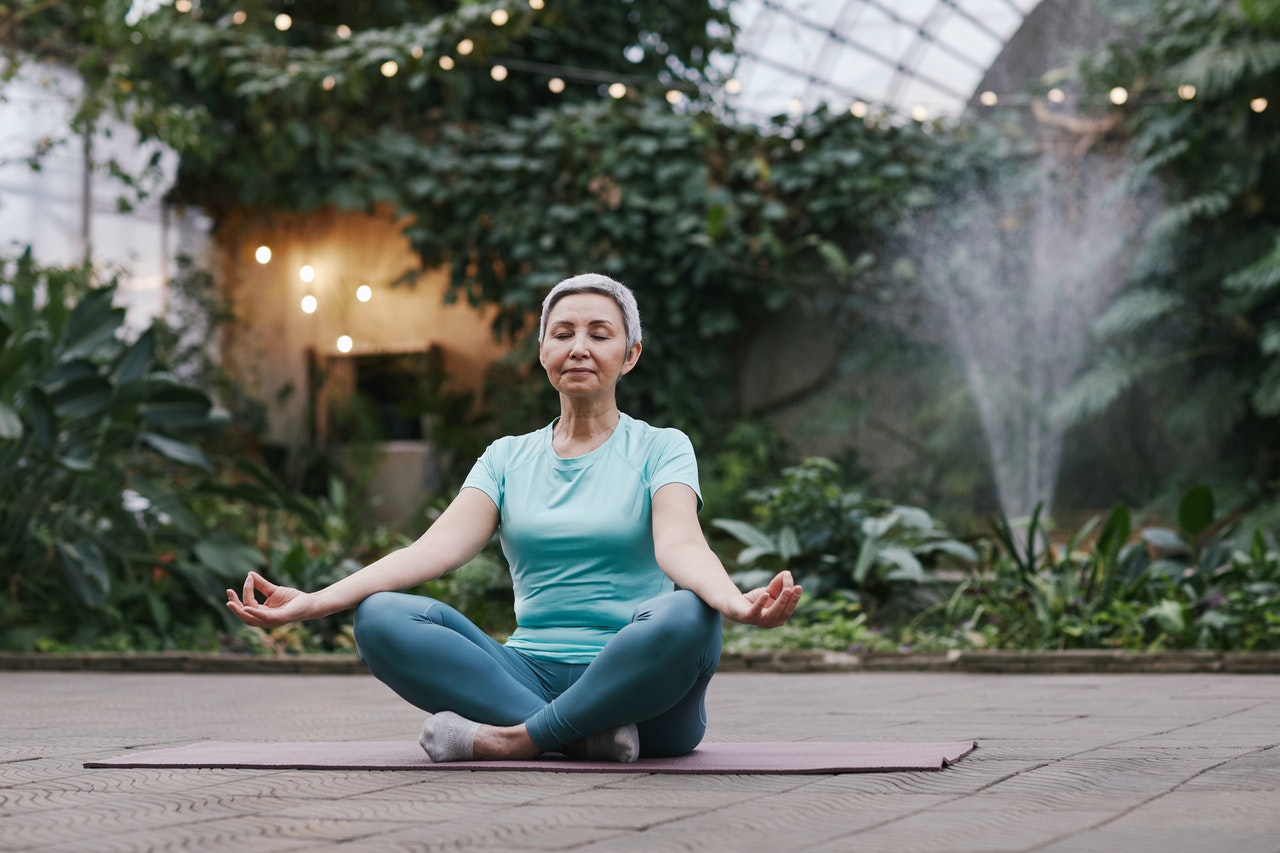
As we transition from winter to spring, it’s important to understand that in TCM, the season of winter is associated with associated with the element of water and it corresponds to the kidneys. The kidneys house our life force or jing and therefore, they must be constantly fed and replenished, as jing dissipates over time. Winter is the perfect time to do this.and is done by sleeping more, eating hearty, warming seasonal foods, and avoiding excessive sweating or exercising.
The season of spring is associated with the element of wood and it corresponds to the liver. As everything around us blossoms in the spring, so too should we embrace this time. But the liver tends to be a bit of a bully for many people and it must be kept in check. Often the winter months leave some stagnant feelings, which can manifest in different areas like relationships, work, or even our bodies. If there is frustration, physical pain, or sadness, it may be a sign that energy is not flowing properly or optimally.
Eating according to the seasons is very important in TCM. As the weather gets warmer, most people gravitate towards healthier food options in an effort to lose some of the winter weight. But according to TCM, eating lighter, more natural foods actually gives the liver a chance to repair itself and that alone can help us feel more energetic and improve our clarity of thought. The immune system also functions better when excess sugar and dairy are removed.
Acupuncture is one of the tools in the TCM toolbox that can help make the transition from winter to spring easier. Acupuncture can balance the body as it reacts to the changes in the weather and activity levels. Regular acupuncture treatments have also been shown to boost immunity. Spring can cause flare ups associated with seasonal allergies and acupuncture treatments can help with the inflammation, sneezing, runny nose and watery eyes that accompany the allergic reactions. But most of all, acupuncture can help regulate those emotional imbalances that are often common during this transitional period.
Feng Shui is another way to make the transition from winter to spring easier. You might have heard of Feng Shui referred to in the Western world as similar to interior design. However, in Chinese culture, feng shui is understood as a far more complex system. It is a practice intended to create harmony in our interior space and relates to our personal energy, the natural world, and our environment.
The ultimate goal of feng shui is to create energized and balanced spaces by drawing in positive energies. It draws on a system of interactions and laws about how humans perceive our physical environment. The art of feng shui governs spatial arrangement and orientation in relation to the flow of energy or Qi (pronounced “chee”). Tossing out old clothing, magazines or just going through that one junk drawer we all have, will create an empty space that will then allow for growth throughout the spring season.
By incorporating some simple TCM techniques into your life you may just have a more enjoyable metamorphosis from winter into spring.
Self-Care and Preventative Medicines
Should I get acupuncture even when I’m not sick? This is a question I get often.
For thousands of years practitioners of acupuncture & Traditional Chinese Medicine (or TCM) have emphasized the importance of preventing illness and disease. So the answer is yes, by definition acupuncture and TCM work to keep the body in balance, not only to revive you when you when stricken by illness.

Going to the doctor when healthy is an obscure thought to those in the Western medical system. TCM practitioners look to many aspects of their patient’s lives beyond the physical aches and pains. According to TCM, there are many contributing factors that can bring the body out of balance. These include both internal and external factors such as seasonal changes, diet, physical activity, and emotional wellbeing.
Western allopathic medicine usually doesn’t recognize the role of emotions in creating illness beyond acknowledging stress exacerbates or causes 80 percent of all illnesses. According to TCM theory, specific emotions are linked to specific parts of the body: being stuck on any one emotion can bring that part of the body out of balance. Acupuncture and TCM can help us stay healthy by balancing these tendencies before chronic imbalances set in.
In one of the oldest books on TCM, “The Inner Classics of the Yellow Emperor,” compiled around 100 B.C.E., it’s written that excess joy slows and scatters qi, excess anger causes qi to ascend, excess sadness and grief weakens qi, excess worry knots and binds qi, fear descends qi and fright induces chaotic qi. The good news is each excessive emotions can be ‘harnessed,’ transformed and channeled into a virtuous emotion, which restores harmony and wellbeing. This transformation of emotions from excess to virtue is a vital aspect of the Yang-Sheng or preventative branch of Traditional Chinese Medicine.
Among the most common of excess emotion is the tendency of overthinking, worry and rumination; this will tend to result in digestive issues and/or metabolism concerns, as well as muscular tension and pain. In order to maintain optimal health one must learn to transform overthinking and worry into the virtue of creativity and dynamic insight.
Developing a regular meditation practice, even five to ten minutes once a day, can make a difference! You will develop the discipline to redirect worry and overthinking into resting in the present moment more often. A quote from “The Dhammapada” (The Buddha’s Path of Wisdom) expresses this, “As the bee collects nectar and departs without injuring the flower, or its color or scent, so let a sage dwell in his village.” When you find yourself worrying, compare your thoughts to a bee. Allow yourself to collect the ‘pollen’ of your thought while also germinating future ideas. This will transform your thoughts into nectar. A bee does not cling to only one flower.
Acupuncture can help you let go and move forward.
Try using acupressure at ST-36 and SP-3 to transform worry into creative action.
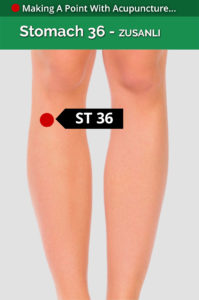 ST-36 is the great harmonizer point: this point does it all! ST-36 can help motivate you, improve your energy, digestion, and boosting your immune system! Locate this point by placing one hand just below the outer knee cap (index finger by the knee cap), use your other hand to find ST-36 (just below your pinky finger) just off the outer shin.
ST-36 is the great harmonizer point: this point does it all! ST-36 can help motivate you, improve your energy, digestion, and boosting your immune system! Locate this point by placing one hand just below the outer knee cap (index finger by the knee cap), use your other hand to find ST-36 (just below your pinky finger) just off the outer shin.
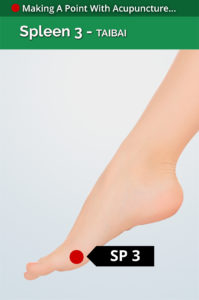 Pair ST-36 with acupressure at SP-3 to clarify your mind and regulate your digestion. Locate SP-3 along the inside of the foot, run your finger along the edge of the big toe until your finger ‘falls’ into a divot, about a three-finger width from the base of the big toe.
Pair ST-36 with acupressure at SP-3 to clarify your mind and regulate your digestion. Locate SP-3 along the inside of the foot, run your finger along the edge of the big toe until your finger ‘falls’ into a divot, about a three-finger width from the base of the big toe.
Look for future articles for tips on transforming other excessive emotions and nourish your vitality and wellbeing with the wisdom of Traditional Chinese Medicine.
Give us a call today to schedule your acupuncture tune-up.
Five Facts You Might Not Know About Acupuncture
Acupuncture is just one facet of a more inclusive medical system known as Traditional Chinese Medicine (TCM). This medical system has been around for about 3,000 years and it has helped thousands of people live long, happy, healthy lives. Acupuncture uses tiny, solid, stainless steel needles that are inserted into the body, which stimulates the nervous and immune systems, bringing balance back to the body.
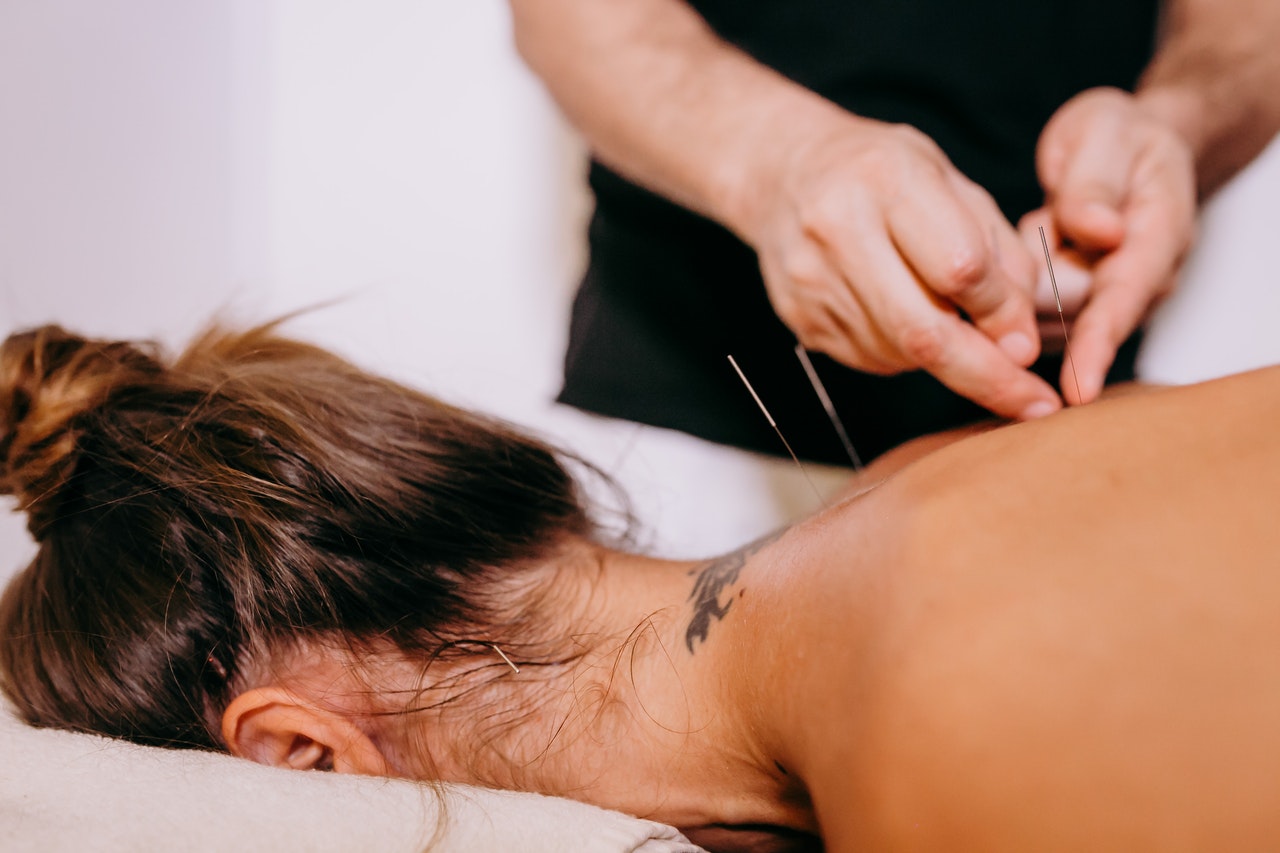
According to the National Commission for Acupuncture and Oriental Medicine, it is estimated that only 10 percent of Americans have tried acupuncture. But according to a survey by the U.S Department of Health and Human Services, those numbers are too high. They estimate only four percent of Americans have actually tried or used acupuncture. For those who have used acupuncture, the rates of success are at 75 percent or better. And many who have received acupuncture are impressed by the amount of attention to detail most acupuncturists give when treating their patients. Acupuncture treats the body holistically, looking at mind, body and emotions in order to give the best treatment possible and cover all bases of the person’s ailment.
Many people are hesitant to try acupuncture, because it can feel foreign and hard to wrap your head around. And with so few people actually using acupuncture, it is no surprise there are a lot of things people don’t know. Here’s a list of five things most people are surprised to find out when it comes to the practice of acupuncture.
Acupuncture does NOT hurt
Licensed acupuncturists hear it all the time, “I don’t like needles.” Well, realistically, who does? But the needles used by acupuncturists are the width of a human hair, very flexible and most people don’t even feel them. In fact, quite a few people who receive acupuncture regularly, actually fall asleep and take a nap once the needles are placed.
Acupuncturists are highly educated
To receive a degree in acupuncture, you are required to attend postgraduate school. This means most acupuncturists already have a bachelor’s degree before they even begin acupuncture school. The acupuncture license is a three to four year master’s degree that includes over 3,200 academic hours. That’s almost as much as most medical doctors.
There are free bonuses to getting acupuncture
Many people seek out acupuncture for a specific ailment. But the glory of this ancient medicine is you will also receive some free bonuses, like improved sleep, better concentration and improved mental attitude. Your whole being gets treated through acupuncture!
Acupuncture helps with almost everything
Most people think of acupuncture for pain relief, but the truth is it can treat so much more. Acupuncture can help with anxiety, depression, addiction, weight issues, insomnia, digestive issues and of course any kind of pain.
Not all acupuncture is the same
There are multiple styles of acupuncture: five element, TCM, Tan, Tung, auricular, abdominal, scalp, Korean, etc. No two are exactly alike, but they all have one common thread, helping people get and stay healthy.
So now that you know a little more about acupuncture, what are you waiting for? There’s no better time than the present to get going when it comes to your health. And there’s nothing stopping you except you.
Family Exercise in the Winter
You’re not imagining it. As the days grow shorter and the air cooler, the kids are getting restless and you may be too. According to the Center for Disease Control (CDC), kids need at least 1 hour of physical activity…every day. Adults should be partaking in either 2.5 hours of exercise at a moderate level OR 1.25 hours of vigorous exercise per week, minimum. Don’t let this cold season give you an excuse to skip the physical exercise and crawl back under your cozy covers. Here are some fun ways to incorporate movement and physical activity through the winter months for the whole family.

INDOOR EXERCISE
-Resistance Training- Bodyweight exercises are a great way to improve balance, flexibility, and strength without any bulky equipment. With a simple Google search, you can EASILY uncover a variety of exercises using the resistance of body weight alone.
-Boxing- Get your heart pumping with a simple boxing routine. Boxing provides a full-body workout, ducking, blocking, and throwing punches. Focus on your footwork for a cardio heavy conditioning workout that’ll get you sweating.
-Play Games- Purchase your family some soft nerf balls and start a game of indoor dodgeball. Try setting up an indoor basketball hoop for fun way to start laundry day. Consider dance parties in the kitchen while putting away dishes. Use commercial breaks to challenge each other to dance contests or during study breaks from online schooling. Try making a hopscotch or obstacle course with painters tape. Get creative and have fun with it!Get creative and have fun with it!
-Family Mindfulness- Competitive activities teach children to master their bodies, and often this can lean hard into focusing on their weaknesses. And while activity and goal setting are imperative to growth, we need to remember to teach our children to be content with themselves in a noncompetitive and appreciative way as well. Activities like Tai Chi, Yoga, or Meditation can help children feel at one with their bodies, teaching them to respect their physical and emotional selves.
SEEK OUT RECREATIONAL FACILITIES
Ready to get out of the house but not into the cold? No worries, we have exercises for you too.
-Swimming- It’s never the wrong time to go swimming. Swimming is a phenomenal physical activity for so many reasons. Firstly, swimming is an age-friendly activity. Being immersed in water provides low-impact therapy for injury rehabilitation or physically limiting conditions. Because swimming involves endurance it is also a great way to keep muscles toned, including those supporting the heart and lungs. Swimming is a full-body workout that is known to improve flexibility, coordination, balance, and posture all the while alleviating stress. Need we say more?
-Rock Climbing- The benefits of climbing are vast as well. Climbing combines mental stimulation and physical power beautifully to burn over 600 calories per hour. Not only does climbing involve the arm muscles used for gripping and pulling, but this sport will also activate legs, back, and shoulder muscles as well. The balance and finesse of this sport work the core to stabilize movements, leading to a stronger and less injury-prone body. Finding an indoor rock wall could be the winter workout you have been looking for.
-Bowling / Trampoline Park- Even with these quarantine guidelines in place and the pandemic following us into the winter, bowling alleys and trampoline parks are beginning to open back up with new safety guidelines in place. On top of the muscle-building motion of the arms and legs with these activities, they also require attention to detail for successful performance. Both of these activities are great for building hand-eye coordination.
OUTDOOR EXERCISE
Moving around outside can get your heart rate up and keep you warm, but if that isn’t enough consider a warm-up exercise routine for inside before you brave the cold. Remember to dress in long layers, wear boots instead of gym shoes, wear a hat, gloves, and don’t forget warm socks.
Try encouraging your kids to get outside. Consider a walk with the dog, visiting a new park, playing basketball, soccer, or even a good old game of frisbee. Skiing, snowboarding, and snowshoeing are great, but obviously only if you have the snow, equipment, and knowledge. Consider seeking out a local ice rink. Ice skating isn’t just for kids. In fact at a moderate pace simply skating laps can burn up to 500 calories per hour while toning your legs, butt, and similar core stabilizing muscles as rock climbing for fine movements and balance. If ice skating sounds too cold for you, consider bundling up and going for a bike ride. Because of its cardio-heavy nature and use of the quadricep muscles biking will warm your body quickly.
Scheduling the proper time for these activities for you and your family is crucial. Often kids have a lot of energy just after they have just finished school for the day, this is an optimal time to introduce rousing new adventures. Also keep in mind that positive reinforcement is the best way to form new healthy habits, both for you and your kids. Keep the dialogue light and encouraging as you discover these exciting wintertime activities together. While picking up new activities can seem like a large undertaking, you are potentially investing in new lifelong passions. And who knows, you might even end up with a workout you’ll want to do all year long.
Start small and remember to reach out to me if you need any advice.
Immune System Health and TCM
Viruses, germs and bacteria are everywhere. They are in the food we eat, the air we breathe, and the water we drink. According to Chinese medicine, they do not cause disease. When a certain organ system is already weak and unable to resist outside invasion, it is therefore prone to attack by germs, such as viruses and bacteria. Illness and disease can only result when our body provides a hospitable environment.
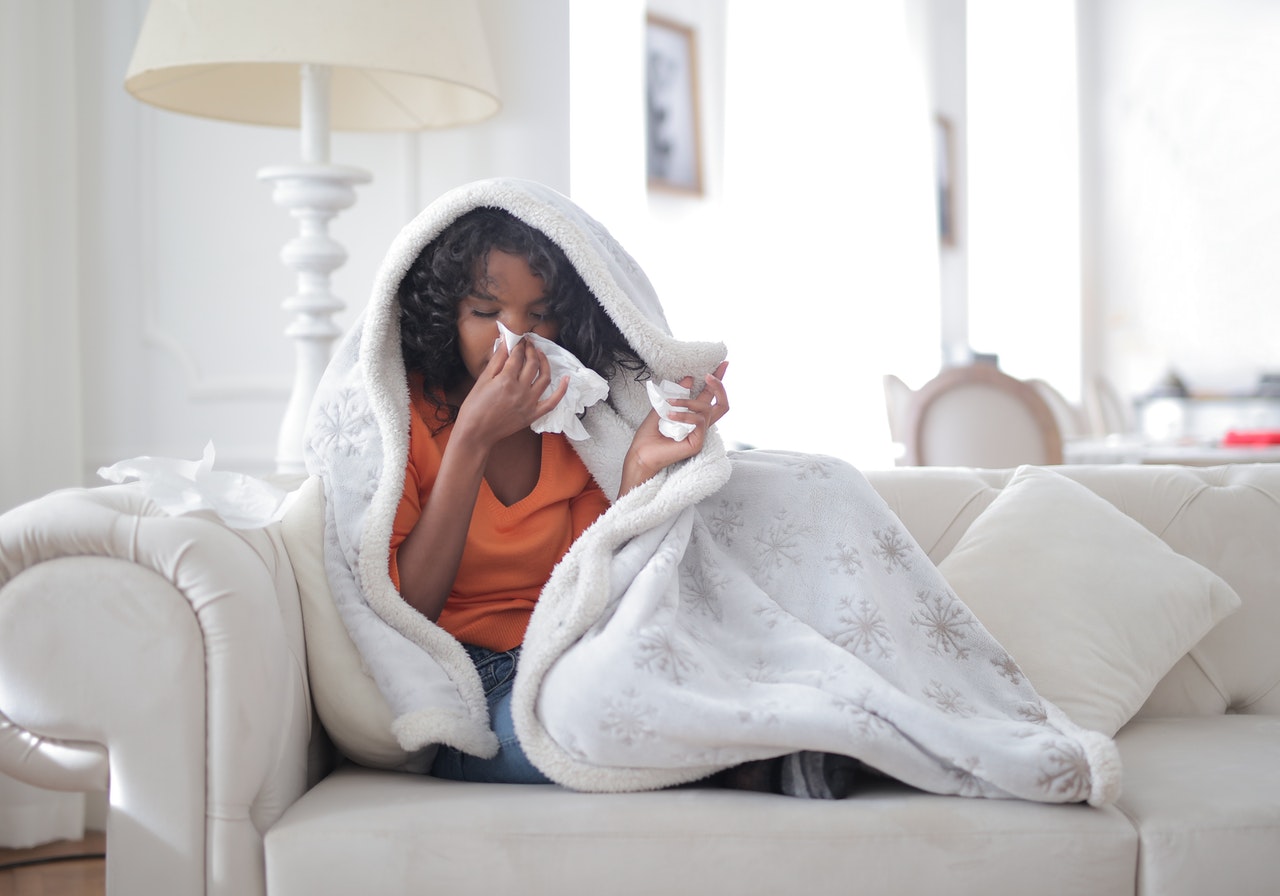
For example, let’s say you inhaled influenza virus. Just because these germs are present, does not mean you will get the flu. There are several factors involved such as the health of your lungs, the vitality of your immune system, and your overall health.
Germs gather and thrive only in weakened parts of the body. When there is an imbalance of Qi, the normal functions of your body will ultimately be affected. This can change the normal immune system response and lead to illness.
A disease requires both a pathogen and a host. These nasty critters can only survive and flourish if circumstances are ripe. When the germs are strong, but the environment of the host (you) is stronger, the disease will be resisted. If the host is weak, however, then your environment can become a hospitable refuge for viruses, germs, bacteria and other microbes to set up shop.
Your Meridian channels control the flow of healing energy throughout your entire body, including your organs. The function (health) of your lungs, and the strength of your immune system all depend upon the quality, quantity and balance of Qi which flows within your meridian channels. The “true cure” of disease is simply NOT to kill germs, but to reestablish and build up the body’s amount of healing Qi. This will ultimately provide the adequate amount of Qi in order to restore the integrity of your meridian and organ system.
KISS SICK GOODBYE
Along with frequent acupuncture treatments, here is another way to boost your immunity in order to stay well through spring.
You can begin by taking astragalus throughout the winter. This is an herb that is revered for its first-class immune support. It is also useful if you feel tired, weak, or apathetic.
Modern research suggests that astragalus is a “biological response modifier,” increasing the function of the adrenal cortex, helping us adapt to stress easier, and increase the production of white blood cells.
If you have been around folks who are sneezing and coughing, try using maitake. This little mushroom can also help to stimulate the immune response. You can use this regularly, after being exposed to some nasty bug.
If you have already caught a cold, you can try echinacea. This herb can help to shorten the duration of a cold. Start using it as soon as you feel under the weather and then stop use as soon as you feel well again.
Herbs are a powerful medicine. It is helpful to consult with an herbalist to make sure you are getting the right type of herbs.
If you or someone you know are looking for immune-supportive remedies, schedule an appointment with me today. Acupuncture and Traditional Chinese Medicine have so much to offer.
Season of the Lungs
The theories of Chinese medicine suggest that each season relates to a different organ system. The Fall is the season of the Lungs. It’s the time of year when people are easily affected by environmental influences. Great changes are taking place in the weather and plant life around us. Some people refer to it as the “flu season.”

The lungs are called the “delicate protective organ,” because they are the only organ that comes into direct contact with the external environment. This can make them vulnerable to the environmental influences which can lead to colds, the flu or allergies.
The lungs are also involved in the production of Wei Qi. Wei Qi is a similar concept to what Western medicine refers to as the immune system. Wei Qi provides the body with an “immune system-like” barrier that protects the body from harmful pathogenic factors that can enter into it, and which may eventually lead to illness and/or disease.
Healthy and strong lungs can enhance the proper functions of the entire body. Through an intricate process, the Lungs extract “pure essence” from the air we breathe and combine it with the food we ingest to produce the Wei Qi. This immunity-like system is then circulated throughout the entire body, providing it with a first line of defense.
When the lungs are functioning correctly, we remain healthy, and potentially free from illness, however, when our lungs become weakened or imbalanced, our body may not have the capacity to produce the correct amount of Wei Qi. When this occurs, the stage for “catching” a cold, the flu or allergies is set. Weak lungs and Wei Qi can also lead to asthma, eczema, dry skin and other problems.
The lungs are negatively affected by many factors: an improper diet, emotional stress, unexpressed or long-held grief or sadness, inherited constitution, smoking, bad air or pollution.
The ancient classic text, Zhen Jing, states, “If the lungs function well, it can activate the flow of Qi, and nourish the whole body with Wei Qi, as rain nourishes young crops.” Proper lung function is necessary to keep us healthy and to help ward off illness and disease.